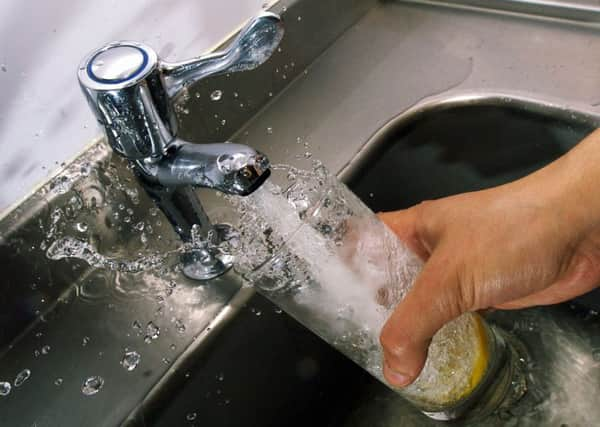Castle swallows rival Cobalt in Scottish water deal
This article contains affiliate links. We may earn a small commission on items purchased through this article, but that does not affect our editorial judgement.


Cobalt’s management and staff will transfer to Castle Water. Scott Macleod will become managing director – Scotland, and Hugh Brown will become sales director – Scotland, both reporting to Castle Water chief executive John Reynolds.
Reynolds said: “We recognised the professionalism and capability of Cobalt, and when we reviewed options to increase the size of our Scottish business, Cobalt stood out as the best fit.
Advertisement
Hide AdAdvertisement
Hide Ad“Cobalt customers will continue to be served by the same team, and will also benefit from the broader resource available from Castle Water throughout England as well as Scotland.”
• READ MORE: Companies news
Cobalt Water managing director Andrew Robertson said the firm has grown successfully for the past four years, but would benefit from being part of a larger water group.
Meanwhile, Thames Water’s profits have crashed 86 per cent after a year of “challenges” that saw it miss leak targets for the first time in 11 years and face a record fine for sewage pollution, writes Emma Newlands.
Britain’s biggest water company saw pre-tax profits slump to £71.1 million for the year to 31 March from £511.2m the previous year as it was impacted by higher costs and losses on the value of its own debt.
Underlying operating profits also fell sharply, down to £605m from £742.2m. Despite this, £100m in dividends was paid to its international roster of shareholders shortly before it was hit with a record £20m fine in March for allowing 1.4 billion litres of raw sewage into the River Thames between 2012 to 2014.
The firm said it missed its target for cutting leaks by 47 million litres a day after a series of high-profile burst water pipes in London last year.
• READ MORE: Thames Water taps West Lothian for expanded base
Its annual report revealed that recently hired chief executive Steve Robertson picked up a £54,000 annual bonus in spite of the gloomy set of results.
Advertisement
Hide AdAdvertisement
Hide AdHis total pay stood at £460,000, including the bonus and a pro-rated £550,000 annual salary after taking on the top job in September.
Thames Water revealed that it caused 315 pollution incidents in 2016, higher than last year, but below its 340 target.
The group added that it received an £8.6m regulatory penalty in relation to missed leak targets.
Robertson said that while there were challenges in the year, the business’s underlying performance “was sound and we will continue to invest to achieve operational and customer service excellence.
“We are committed to investing an industry-leading £20m a week to meet our challenging targets, always thinking of the long term.
“Recognising that additional investment is required in some critical areas, we’ll spend in excess of £150m between now and 2020, above our original plans, to replace more ‘trunk’ mains, reduce leakage, improve some of our oldest sewers and upgrade the IT systems that underpin our customer service.
“We remain committed to our push for more efficiency and innovation, including collecting and using data more intelligently – this approach has already transformed our performance in wastewater control. Most importantly, we are committed to improving the unique relationship we have with our customers across London and the Thames Valley, and protecting and enhancing the precious environment in which we operate.”
Advertisement
Hide AdAdvertisement
Hide AdAustralian group Macquarie sold its last remaining stake in Thames Water earlier this year, ending more than a decade of investment in the utility giant.
Macquarie offloaded its 26 per cent shareholding to the Canadian pension fund investor Borealis Infrastructure and the infrastructure investing arm of the Kuwait Investment Authority.